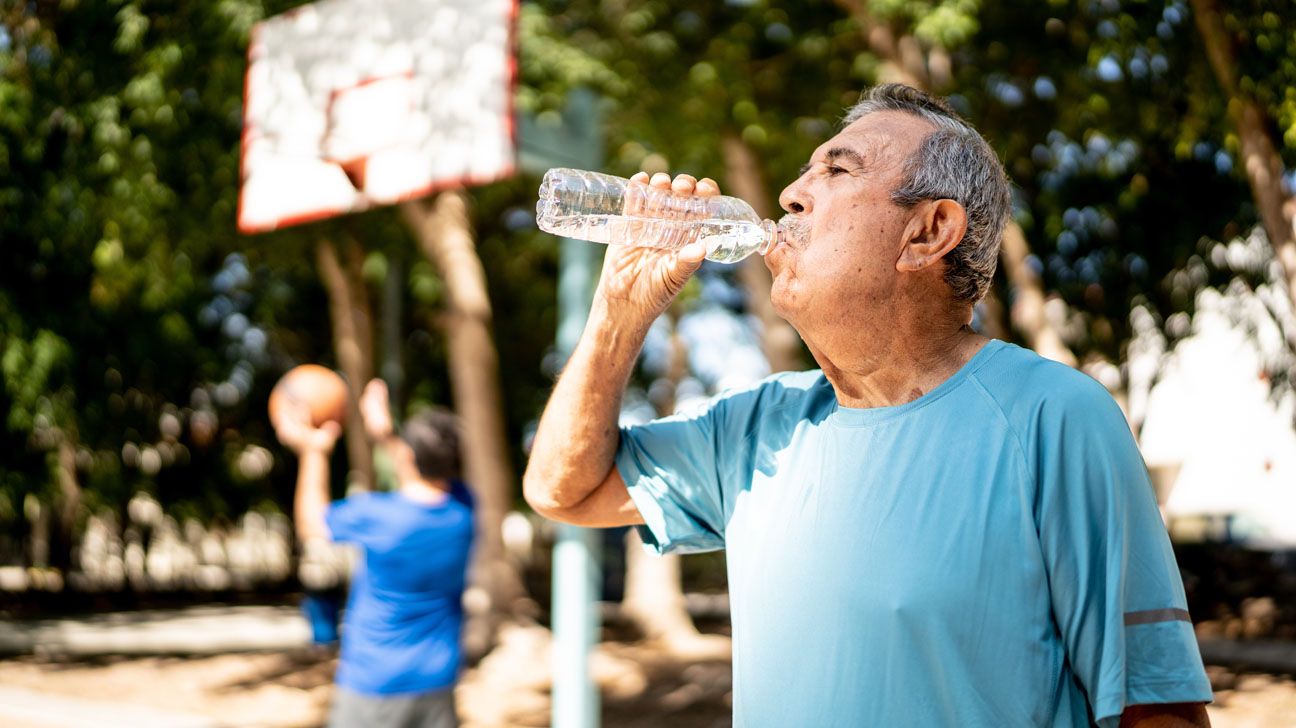
- Higher temperatures can raise the risk of heat-related illness, especially for older adults.
- Extreme heat can place stress on the heart, which could be deadly for those with underlying cardiovascular conditions.
- A cardiologist shares how extreme heat affects heart function and offers tips for staying heart healthy during hotter weather.
As summer draws to a close and extreme temperatures fade into the rearview, heat advisories persist across some parts of the United States.
Cardiovascular risks, especially for older adults living in low socioeconomic status, are of particular concern.
A recent study published in
As heat-related health risks are projected to double over the next two decades, the
Heat-induced dehydration can place stress on the heart and raise the risk for serious cardiac events, such as heart valve failure (HVF).
“Extreme heat exerts significant strain on the cardiovascular system, leading to both immediate and long-term negative effects on heart function,” said Naddi B. Marah, MD, an interventional and structural cardiologist with Memorial Hermann Health System.
Healthline recently spoke with Marah to learn more about heat-related cardiovascular risks like HVF and how to protect your heart health during heat waves.
This interview has been lightly edited for clarity.
Marah: This is a very important distinction — and not always a clear-cut one. Heat exhaustion is most likely caused by recent heat exposure and typically includes symptoms like:
- heavy sweating
- fatigue
- weakness
- dizziness
- nausea
- cool, clammy skin
It’s usually related to dehydration from fluid loss and improves with rest, cooling, and rehydration.
However, if someone experiences chest pain, shortness of breath, confusion, palpitations, or low blood pressure, we become more concerned about a cardiac cause, especially if it’s worse with activity, such as feeling short of breath with minimal activities, such as climbing a flight of stairs.
Marah: Heat exposure can act as a cardiovascular stress test. In people with heart valve disease, this additional stress can trigger decompensation, where the heart is unable to pump enough blood to meet the body’s needs.
Older adults, people with longstanding cardiovascular disease, and especially those taking diuretics or other medications affecting fluid balance, are particularly vulnerable during heat waves, as their hearts’ compensatory mechanisms are often impaired.
HVF can worsen with physical activity and often develops swelling in the legs. It is critical to seek medical evaluation if your initial symptoms do not improve rapidly with cooling or hydration.
That’s why it’s essential to recognize that heat isn’t just uncomfortable — it’s a legitimate health risk, especially for those with known or suspected cardiovascular issues.
Marah: Individuals most at risk for HFV and other underlying heart conditions are adults over 65, and those with other medical conditions, such as:
- high blood pressure
- diabetes
- high cholesterol
- obesity
- kidney disease
A family history of cardiovascular disease also raises your risk, especially if close relatives had heart valve problems or cardiac events at a young age.
If you’re experiencing symptoms such as shortness of breath, fatigue, swelling in the legs, palpitations, or fainting spells, those can be signs that your heart valves aren’t functioning properly.
Marah: Protecting your heart during heatwaves involves both lifestyle adjustments and, in some cases, medication management.
Some key strategies include:
- staying well-hydrated
- avoiding outdoor strenuous activity during peak heat
- using air conditioning or seeking cool environments
- dressing in light, breathable fabrics
Most importantly, monitor for early symptoms of decompensation, including shortness of breath, chest pain, and palpitation.
Don’t hesitate to review your medications with your doctors, and ask if dose adjustments may be necessary during heatwave alerts.
I always tell people, “Don’t wait for symptoms to take the lead.” See your cardiologist for a simple screening, which can catch heart valve issues early and keep your heart beating strong for years to come.


